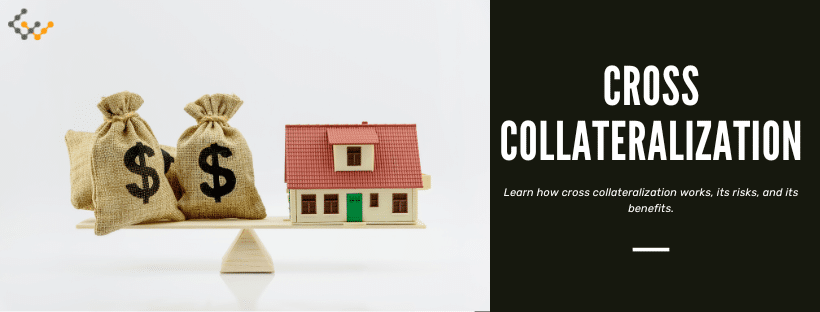Understanding Cross Collateralization in Commercial Real Estate

A cross-collateral loan could be an option for investors who own assets and want to extend their portfolio. Yet, like most opportunities, there are some risks to understanding this process. For those who have collateral, it is worth taking a closer look at how cross-collateral loans could help provide an opportunity to invest at a lower cost.
What Is Cross Collateralization in Commercial Real Estate?
A cross-collateral loan allows the investor to use some type of owned asset, such as a house or savings account, as collateral to borrow funds. By utilizing this asset in this manner, it is possible to reduce the interest rate paid on the loan, making it more affordable to the borrower. The risk here is that by placing those assets as collateral, it creates added risk should the lender seek to seize assets due to nonpayment. In some situations, this could cause the loss of significant assets.
How Does Cross Collateralization Work?
Cross collateralization aims to lower the cost of obtaining a loan. As with most types of loans, having assets behind them lowers the risk to the lender. If the borrower stops making payments on the loan, the lender can often force the sale of those assets or seize them, therefore recouping some or all of their invested value. With less risk as a result, lenders are typically willing to offer a lower interest rate.
There are numerous types of cross-collateralized loans, including commercial real estate options. It typically occurs when an investor pledges the use of one asset to serve as collateral for multiple loans.
Answer a few questions and get custom mortgage quotes. We'll match you with offers from our network of 650+ lenders.
Defaulting on this loan may be an automatic default on all loans, which is sometimes referred to as cross-default. That is because the collateral is being used to secure more than one loan, which lowers the overall default risk, but also puts all loans at risk should that asset be liquidated to repay the debt on one loan.
This type of loan is a complex legal arrangement. It is critical for borrowers to understand how it works before they enter into the loan. Many commercial real estate loans will have a cross-collateralization clause within them that outlines the terms and conditions which must be understood prior to entering into any opportunity.
In these loans, a single asset is used to secure more than one loan. Though those assets do not have to be real estate, they often are.
Keep in mind
There are often instances in which a commercial investor will request a loan from a lender, and a cross-collateralization clause is added to the policy. Explained or not during the initial borrowing process and application, this type of clause puts any asset at risk. If that is not fully understood, it could lead to a costly loss for the borrower.
The borrower should specifically ask to read all fine print and understand all clauses related to the loan they are borrowing prior to entering into this agreement. In some situations, the cross-collateralization will be referred to as other names. This could include “security interest,” for example.
The Truth in Lending Disclosure, a core component of any viable loan, should outline any type of security interest the lender is claiming over other owned assets. In short, even if the borrower does not realize it, less-than-desirable lenders can often add these clauses to put the borrower at a higher level of risk should default occur.
Benefits of Using Cross Collateralization
There are core benefits to both the lender and the borrower in a cross-collateralization loan.
- Lower interest costs: Because there is an asset backing the loan, the cost of borrowing is typically less. There is less risk to the lender, which means most lenders will consider a lower spread compared to the traditional commercial real estate loan.
- Borrowing power increases: In some situations, these loans can offer a larger amount of borrowing power than what the investor could obtain without the asset. The loans can be larger, which means that this can help to increase the financing opportunities for the property.
- Leveraged equity: For investors, this opportunity allows for leveraging existing equity and minimizing capital requirements. That is due to the use of existing assets to obtain the new type of financing.
- Quick asset: By comparison to other commercial real estate loans, these tend to be faster to fund and may help to keep fees low. This is further the case when the same lender provides the loans.
Risks of Using Cross Collateralization
There are risks to using a cross-collateral loan that must be considered prior to invest in them.
- The risk of default: The terms and conditions of the new loan must be fully understood, which can help to minimize the risk of default. However, this is critical when determining whether this type of loan is beneficial. Should a default occur, this allows the lender to repossess or force the sale of the asset, leading to a loss for the investor.
- Bankruptcy limitations: Most often, investors who file for bankruptcy can have this type of debt discharged. However, that could lead to the forced sale of the asset to repay the lender during the bankruptcy process. In short, it is a secured loan which means that during bankruptcy, the assets could be sold to pay back lenders.
- Disposal limitations: If the investor aims to sell the asset for any reason, they may be unable to do so legally due to the security. In some situations, the lender may require repayment of the debt in full if the secured asset is being sold or otherwise disposed of, which can be costly for some investors.
Are Cross-Collateral Loans Right for You?
As a commercial investor, it is critical to consider all opportunities for investment, and a cross-collateral loan could be one of those opportunities. Every borrower needs to seek out the most affordable loan terms, and the use of collateral could reduce those costs substantially. However, investors should carefully consider the risks associated with these loans before deciding to use them, including the risk of loss of those assets if default on the loan occurs.
In a cross-collateral loan, a commercial real estate investor is able to purchase property at a lower cost due to the use of other assets, which can help to lower the risks and interest rates. Though these loans come with risks should default on the loan occur, they can be a sizable and beneficial loan option for some investors looking for the least expensive funding option.

